Over a million people have signed an online antiwar petition after human rights activist Lev Ponomarev published a Russian-language letter against the war (see below).
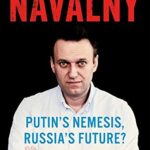 The initiative came as jailed Kremlin critic Alexei Navalny told Russians on Friday to protest against the war in Ukraine in Russian cities and across the world on March 6, and accused President Vladmir Putin of bringing shame on the Russian national flag and language, Reuters reports:
The initiative came as jailed Kremlin critic Alexei Navalny told Russians on Friday to protest against the war in Ukraine in Russian cities and across the world on March 6, and accused President Vladmir Putin of bringing shame on the Russian national flag and language, Reuters reports:
Navalny, Putin’s most prominent domestic opponent, told Russians in a post on his blog to shrug off fears of protesting against Russia’s invasion of Ukraine and to take to the squares of their cities even if they had already left Russia.
“Show the world that Russians don’t want war. Come out in the squares of Berlin, New York, Amsterdam or Melbourne, wherever you are. Now we are all responsible for Russia’s future.
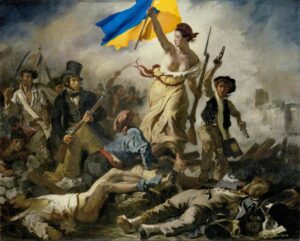 For what Russia will be in the eyes of the world,” he said in the post. “You may be scared, but to submit to this fear is to side with fascists and murderers. Putin has already snatched away from Russia its economy, relations with the world and hope for a future,” Navalny added.
For what Russia will be in the eyes of the world,” he said in the post. “You may be scared, but to submit to this fear is to side with fascists and murderers. Putin has already snatched away from Russia its economy, relations with the world and hope for a future,” Navalny added.
In the face of growing anti-war sentiment, the Kremlin is clamping down on independent media and forcing journalists to adopt forms of self-censorship.
Russia’s last major independent newspaper, Novaya Gazeta, said it was deleting its content about the war in Ukraine [while] Echo of Moscow, a radio station founded by Soviet dissidents in 1990 and acquired later by the state energy giant Gazprom, said on Friday that it would delete all corporate social media accounts and turn off its website as part of a “liquidation” process, The New York Times reports.
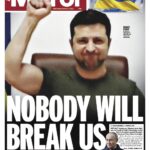
Screen grab
Ukrainian President Volodymyr Zelenskiy thanked Russians who have opposed the war and urged them to call for an end to the invasion.
“I want the people of Russia to hear me,” he said in a video address (below). “Absolutely everyone.”
“[There are] thousands of dead [Russian] soldiers, hundreds of prisoners of war who don’t understand why they sent them to Ukraine, sent them to Ukraine to die and kill others. The sooner you tell your leaders that the war needs to be immediately stopped, the more your soldiers will survive.”
Ukraine President Zelenskyy urges victory of ‘freedom over slavery’ — live updates https://t.co/FaogIuOwb9
— Democracy Digest (@demdigest) March 4, 2022
Russia’s civil society – already historically shallow – has been repressed and reduced over decades, leaving no sufficiently robust counterpart to act in solidarity with its Ukrainian counterpart, activists told a National Endowment for Democracy (NED) forum today.
And yet…..
Over a million people have signed an online petition #RussiainvadesUkraine on Change.org after human rights activist Lev Ponomarev initiated a Russian-language letter against the war (HT @mbk_center).
Lev Ponomarev (80), initiator of a petition #RussiainvadesUkraine was attacked by several people on his way to prosecutor‘s office, where he was interrogated as to why he didn’t identify himself as a „foreign agent“ in the petition against Putin’s war (now 1.5 million signatures) pic.twitter.com/cJJDFxb35K
— Mikhail Khodorkovsky (English) (@mbk_center) March 3, 2022
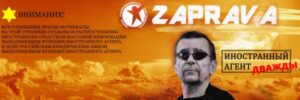 Putin ordered the start of a military operation against Ukraine despite the terrible price that both Ukraine and Russia will undoubtedly pay for this war, despite all the voices of reason that sounded in Russia and beyond, it states:
Putin ordered the start of a military operation against Ukraine despite the terrible price that both Ukraine and Russia will undoubtedly pay for this war, despite all the voices of reason that sounded in Russia and beyond, it states:
- Official Russian rhetoric claims that this is done in “self-defense.” But history cannot be deceived. The burning of the Reichstag was eventually exposed [as having been staged], but today no exposure is required—everything is obvious from the very beginning.
- We, the supporters of peace, acting in the name of saving the lives of the citizens of Russia and Ukraine […] demand an immediate ceasefire by the Russian Armed Forces and their immediate withdrawal from the territory of the sovereign state of Ukraine. We consider as war criminals all those who made the decision to start hostilities in the east of Ukraine, sanctioned aggressive and war-justifying propaganda in the Russian media dependent on authoritative power. We will seek to hold them accountable for their deeds.
- We appeal to all sensible people in Russia, on whose actions and words the future depends. Become part of the anti-war movement, oppose the war. Do this at least to show the whole world that in Russia there were, are and will be people who will not accept the villainy perpetrated by the authorities, who have turned the very government and peoples of Russia into an instrument of their crimes.
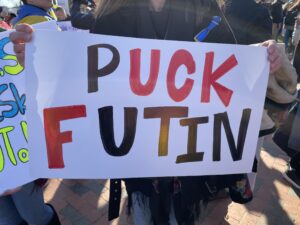 There are three broad categories of Russians who have voiced their opposition to the war, albeit in different ways, says Associate Professor of Russian Politics at University College London. It helps to visualize these as three concentric circles, starting from the largest and closing in, he writes for The Conversation:
There are three broad categories of Russians who have voiced their opposition to the war, albeit in different ways, says Associate Professor of Russian Politics at University College London. It helps to visualize these as three concentric circles, starting from the largest and closing in, he writes for The Conversation:
- Anti-war street protests attended by regular citizens have swept the country. Within the first week of Russia’s full-scale military invasion of Ukraine, at least 7,669 people were detained by police at anti-war protests across Russia according to OVD-Info, a Russian human rights organisation. Those detained include people all the way from primary school children to an elderly pensioner in St Petersburg.
- Portions of the intellectual and cultural elite have also voiced their opposition to war – from TV celebrities to sportspeople and scientists. Beyond individual statements, a flurry of open letters have been signed, including by 44 of the country’s top chess players and by academics. There are already cases, though, of signatories facing negative consequences, including losing their jobs. As well as the detentions at protests, this serves as a clear reminder of the bravery of those publicly opposing the war.
- With the enormous fortunes that stand to be lost because of the west’s unprecedented sanctions, it is plausible that members of the economic and political elite might speak out. Some already have. A few of Russia’s wealthiest people – for example, the oligarchs Mikhail Fridman and Oleg Deripaska – have called for peace. One of the country’s largest oil companies, Lukoil, has also called for an end to the war in Ukraine. But there is clear caution. Calling for peace is not the same as directly criticising Putin, as Fridman has acknowledged.
 So far, however, there are no signs of significant cracks at the top, Noble observes. And that’s no surprise – Putin has surrounded himself with hyper-loyalists, the inner circle of which share his impression of a west intent on undermining Russia and his rule.
So far, however, there are no signs of significant cracks at the top, Noble observes. And that’s no surprise – Putin has surrounded himself with hyper-loyalists, the inner circle of which share his impression of a west intent on undermining Russia and his rule.
The Atlantic Council’s @melindaharing and @JacobHeilbrunn are trying to raise $50,000 for medical supplies in Ukraine for @razomforukraine’s emergency fund this weekend. DONATE HERE.
— Melinda Haring (@melindaharing) March 4, 2022
In the former Soviet republic of Georgia, about 30,000 people hit the streets of the capital, Tbilisi, holding Georgian and Ukrainian flags and singing both countries’ national anthems, RFE/RL reports.







